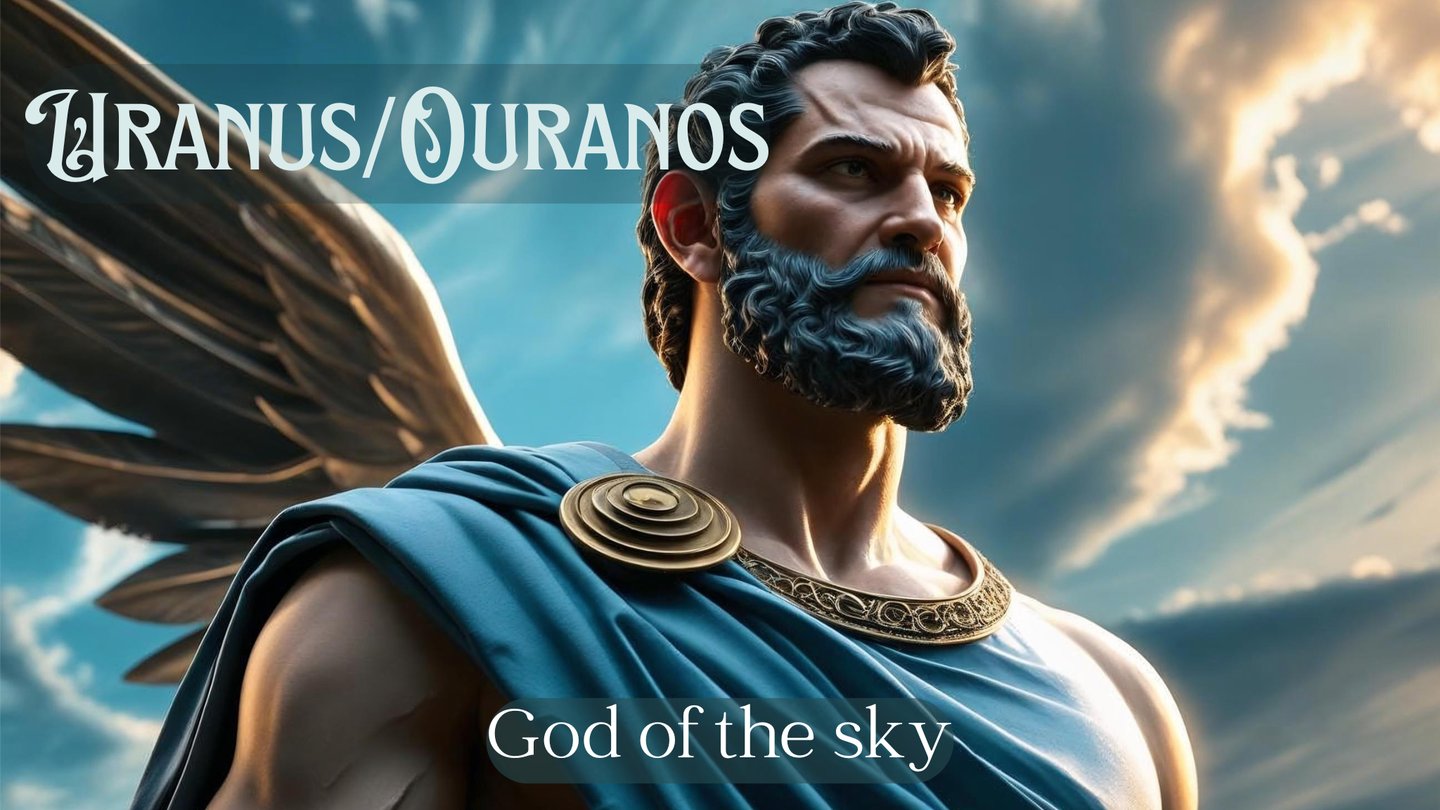Uranus in Astrology: The Planet of Rebellion, Innovation, and Sudden Change
In Greek mythology, Uranus (Ouranos) is the primordial god of the sky, the father of the Titans, and one of the oldest deities in the Greek pantheon. His myth is one of creation, power, and cosmic upheaval, reflecting Uranus’s astrological themes of disruption, freedom, and innovation.



Uranus, the planet of innovation and rebellion, represents sudden change, unpredictability, and a break from the status quo. It governs revolutions, breakthroughs, and all things unconventional. In astrology, Uranus is the force that disrupts established structures, pushing us toward freedom, individuality, and progressive thinking. This planet is closely associated with genius, science, and technology, making it a catalyst for personal and societal evolution. In mythology, Uranus (Ouranos) is the primal god of the sky, whose story reflects themes of creation, upheaval, and cosmic transformation. This blog will explore Uranus’s astrological significance and delve into the rich mythology that surrounds this planet.
The Astrological Significance of Uranus
Uranus is the modern ruling planet of Aquarius, a sign associated with originality, forward-thinking, and humanitarian ideals. Uranus’s energy is rebellious, electric, and unpredictable, encouraging us to break free from outdated systems and embrace change. Here’s what Uranus governs in astrology:
Rebellion and Freedom: Uranus encourages independence and the desire to break away from restrictions. It drives us to question authority, challenge the status quo, and seek personal and collective freedom.
Innovation and Technology: As the planet of invention and progress, Uranus rules over technology, science, and breakthroughs. Its influence pushes us toward discoveries and advancements that reshape society, often in sudden and unexpected ways.
Sudden Change and Disruption: Uranus is known for its disruptive energy, often bringing sudden changes and surprises. These changes can be liberating but are sometimes shocking or destabilizing. In personal astrology, Uranus transits often mark periods of upheaval that lead to greater freedom or new directions.
Unconventionality and Individuality: Uranus inspires originality and encourages people to embrace their uniqueness. It values individuality over conformity and rewards those who think outside the box.
Uranus’s energy can feel chaotic, but it ultimately serves to bring about necessary changes. While its influence might be disruptive, it creates space for growth, evolution, and the emergence of new possibilities.
The Mythology of Ouranos:
The Primal God of the Sky
In Greek mythology, Ouranos is the primordial god of the sky, the father of the Titans, and one of the oldest deities in the Greek pantheon. His myth is one of creation, power, and cosmic upheaval, reflecting Ourano’s astrological themes of disruption, freedom, and innovation.
Ouranos was born from Gaia (Earth), who created him as her equal and partner. Together, Ouranos and Gaia gave birth to the first generation of divine beings, including the Titans, the Cyclopes, and the Hecatoncheires (giants with a hundred hands). Ouranos represents the sky, while Gaia represents the earth, symbolizing the union of heaven and earth in the creation of the cosmos.
Despite being a figure of creation, Ouranos became a tyrannical force. Fearing his children would overthrow him, Ouranos imprisoned the Cyclopes and Hecatoncheires in Tartarus, deep within the Earth, causing great pain to Gaia. Ouranos's attempt to control and suppress his offspring reflects the oppressive side of authority and power, mirroring the challenges Ouranos in astrology brings when we resist change or try to maintain control over situations that need transformation.
One of the most famous myths connected to Uranus is the birth of Aphrodite, the goddess of love and beauty. According to myth, when Uranus was castrated by Cronus, his severed genitals fell into the sea, and from the foam that formed around them, Aphrodite emerged. This creation myth of Aphrodite ties Uranus to the concept of cosmic transformation and the birth of new forces out of chaos and destruction.
Uranus in Astrology:
Placement and Influence
Uranus’s placement in the birth chart reveals where we experience sudden changes, where we seek freedom, and where we are meant to innovate and break away from tradition.
Uranus’s sign placement shows how we express rebellion, innovation, and individuality. For example, Uranus in Aquarius (its ruling sign) is revolutionary and forward-thinking, while Uranus in Taurus might challenge traditional values and structures in more practical or material ways.
Uranus is the planet of rebellion, innovation, and sudden change. Its influence in astrology pushes us to break free from limitations, question the status quo, and embrace our individuality. While Uranus’s energy can feel chaotic or disruptive, it ultimately serves to bring about growth, progress, and greater freedom. In mythology, Uranus’s story reflects these themes of cosmic upheaval and transformation, as his downfall led to the creation


